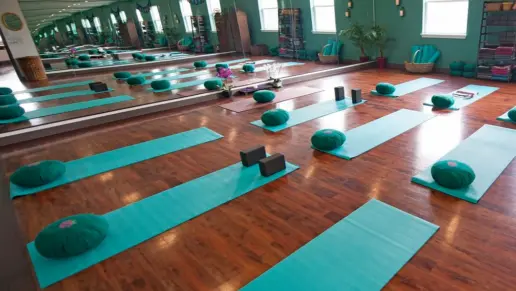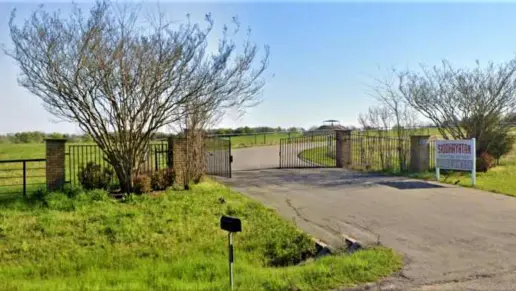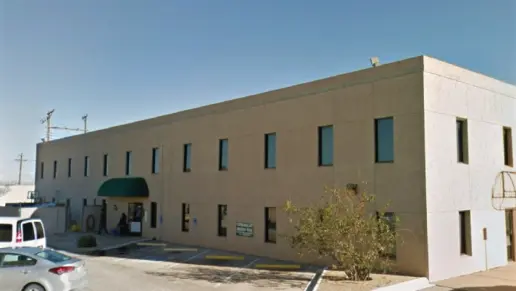About the Facility
Access Counseling Group - Main Street is situated in Frisco, Texas. It is a rehab center that provides individuals with educational courses, support groups, substance abuse addiction treatment, counseling services, and DOT SAP services. This addiction treatment center realizes that there is no one-size-fits-all approach to addiction, which is why every person attending this rehab receives an individualized outpatient treatment program.
Access Counseling Group is accredited and certified to offer adolescent and adult outpatient programs to help individuals with drug and alcohol addiction recovery. These substance abuse recovery programs cater to the specific needs of the individual, and more can be learned about them below:
The adolescent intensive outpatient program (IOP) provides youth with addiction treatment services that are recognized as the benchmark standard for other institutions. This IOP shows youth how to change through individual attention and evidence-based therapy techniques.
The adult intensive outpatient program (IOP) offers a wide range of addiction treatment modalities to help families recover from the negative impacts of substance abuse addictions.
This IOP utilizes a team support approach and develops individualized treatment plans to ensure individuals remain accountable to foster long-term sobriety.
Those involved in this program will participate in group and individual counseling alongside family therapy in the evenings or afternoons.
 Treatment
Treatment
 Alcoholism
Alcoholism
Alcoholism occurs when a person becomes physically and psychologically dependent on alcohol. Attending a professional alcohol rehab in Texas can provide customized intervention methods to address the physical, mental, and relational challenges of addiction.
 Drug Addiction
Drug Addiction
During rehab in Texas, you’ll deal with underlying issues that contribute to addiction. By addressing these challenges and learning healthy ways to cope with them, you’ll develop strategies that help you live a drug-free lifestyle.
 Mental Health and Substance Abuse
Mental Health and Substance Abuse
In Texas, dual-diagnosis addiction treatment programs can treat individuals with co-occurring mental health and substance abuse challenges. Usually offered on an inpatient or outpatient rehab basis, clinicians provide individual and group therapy, medication-assisted treatment, cognitive behavioral therapy, or dialectical behavioral therapy, and skills training to address both disorders and equip you with the skills to maintain your recovery.
 Opioid Addiction
Opioid Addiction
Opioid rehabs specialize in supporting those recovering from opioid addiction. They treat those suffering from addiction to illegal opioids like heroin, as well as prescription drugs like oxycodone. These centers typically combine both physical as well as mental and emotional support to help stop addiction. Physical support often includes medical detox and subsequent medical support (including medication), and mental support includes in-depth therapy to address the underlying causes of addiction.
 Insurance and Financial
Insurance and Financial
Self-pay options
Private insurance
Per session
 Programs
Programs
-
Adult program
-
Elderly program
-
Program for men
-
Program for women
-
Young adult program
 Levels of Care
Levels of Care
 Intensive Outpatient
Intensive Outpatient
Intensive outpatient programs offer high-level care for clients as an increased risk of relapse, including those in early recovery, those with a strong history of relapse, and those experiencing a crisis. Intensive outpatient treatment typically requires clients to engage in nine to 20 hours of care weekly, with treatment modalities that combine psychotherapy and recovery education, and holistic therapies, such as acupuncture and animal therapy. Medication assisted treatment (MAT) is also common in alcohol and/or opioid recovery.
 Outpatient
Outpatient
Clients are typically admitted to outpatient rehab once they have completed intensive inpatient care. Some clients who are exiting inpatient detox may also choose to transition directly into outpatient care. High-intensity outpatient programming, including partial hospitalization (PHP) and intensive outpatient (IOP) is widely available for clients in early recovery, those leaving detox, and those at an elevated relapse risk. Clients in outpatient care generally engage in robust addiction counseling and recovery education. Those in opioid and/or alcohol recovery may also receive medication assisted treatment (MAT).
 Aftercare Support
Aftercare Support
Completing a drug or alcohol rehab program shouldn't spell the end of substance abuse treatment. Aftercare involves making a sustainable plan for recovery, including ongoing support. This can include sober living arrangements like halfway houses, career counseling, and setting a patient up with community programs like Alcoholics Anonymous (AA) or Narcotics Anonymous (NA).
 Clinical Services
Clinical Services
Cognitive Behavioral Therapy
Cognitive Behavioral Therapy (CBT) is a therapy modality that focuses on the relationship between one's thoughts, feelings, and behaviors. It is used to establish and allow for healthy responses to thoughts and feelings (instead of unhealthy responses, like using drugs or alcohol). CBT has been proven effective for recovering addicts of all kinds, and is used to strengthen a patient's own self-awareness and ability to self-regulate. CBT allows individuals to monitor their own emotional state, become more adept at communicating with others, and manage stress without needing to engage in substance abuse.
Couples Therapy
Whether a marriage or other committed relationship, an intimate partnership is one of the most important aspects of a person's life. Drug and alcohol addiction affects both members of a couple in deep and meaningful ways, as does rehab and recovery. Couples therapy and other couples-focused treatment programs are significant parts of exploring triggers of addiction, as well as learning how to build healthy patterns to support ongoing sobriety.
Family Therapy
Research indicates that family involvement in treatment increases the success rate for individuals in treatment for substance use disorders. Family counseling helps to strengthen accountability of the individual in counseling as well as offering family members a place in their loved one’s recovery. Families benefit in education, methods to refrain from enabling a chemically dependent person, and how to identify and avoid manipulation. When working with adolescents in recovery, it is imperative that family members participate in treatment.
Group Therapy
Group therapy is any therapeutic work that happens in a group (not one-on-one). There are a number of different group therapy modalities, including support groups, experiential therapy, psycho-education, and more. Group therapy involves treatment as well as processing interaction between group members.
Individual Therapy
In individual therapy, a patient meets one-on-one with a trained psychologist or counselor. Therapy is a pivotal part of effective substance abuse treatment, as it often covers root causes of addiction, including challenges faced by the patient in their social, family, and work/school life.
Life Skills
Life skills trainings involve all the skills a person must have in order to function successfully in the world. These include time management, career guidance, money management, and effective communication. Truly successful addiction recovery is based on the ability to not only live substance-free, but to thrive. Life skills teaches the practical necessities of functioning in society, which sets clients up for success in life, and therefore sobriety.
Trauma Therapy
Trauma therapy addresses traumatic incidents from a client's past that are likely affecting their present-day experience. Trauma is often one of the primary triggers and potential causes of addiction, and can stem from child sexual abuse, domestic violence, having a parent with a mental illness, losing one or both parents at a young age, teenage or adult sexual assault, or any number of other factors. The purpose of trauma therapy is to allow a patient to process trauma and move through and past it, with the help of trained and compassionate mental health professionals.
 Settings and Amenities
Settings and Amenities
-
Private setting
 Contact
Contact
4280 Main Street
Suite 300
Frisco TX, 75033


